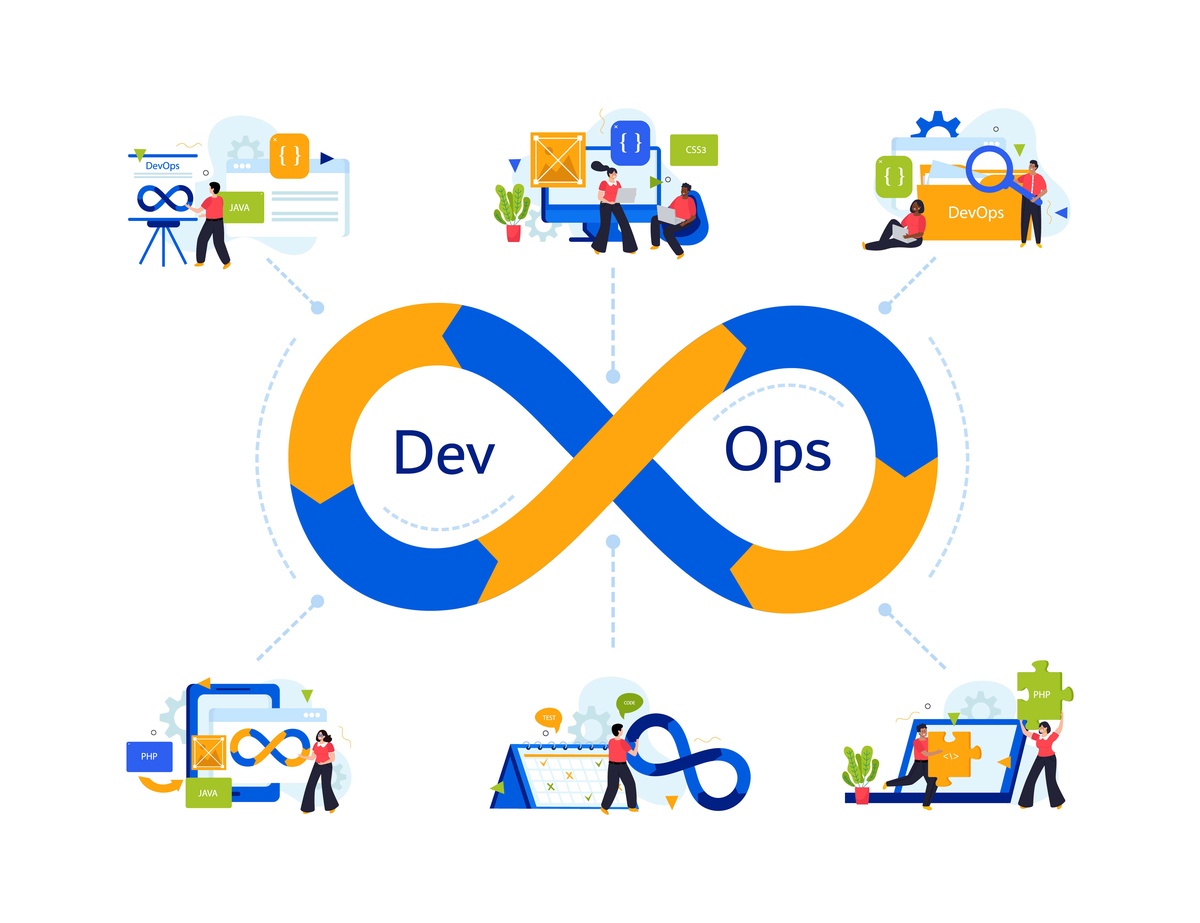Within the dynamic realm of startups, where creativity is essential and limited resources are a given, the complex interplay between DevOps methodologies and cost reduction assumes a central role.
Beyond just cutting costs, we want to show how to cut costs while carefully crafting a story that maximizes value and operational effectiveness.
Leading Efficiency with Cost Optimization and DevOps
Startups find a strategic ally in DevOps because of their innate demand for quick development cycles and an unending pursuit of efficiency. DevOps is more than just a collection of procedures; it's a culture revolution that promotes teamwork, automation, and the never-ending quest for continuous improvement.
Because of its alignment with efficiency, DevOps is positioned as a vital tool for entrepreneurs hoping to create innovative goods in an environmentally friendly and long-lasting way.
Startups must hire DevOps engineers who can seamlessly integrate this transformative culture, fostering collaboration, automation, and continuous improvement as they navigate the constantly changing landscape of technology.
It will ensure the timely development of cutting-edge products and their long-term sustainability and cost-effectiveness.
Strategies for DevOps Startups to Reduce Expenses
DevOps cost optimization is a symphony, a harmonious fusion of proactive management, strategic planning, and the smooth integration of methods supporting development and operations in a startup setting.
1. Adequate resources
Every product engineering company has to deal with the age-old problem of overprovisioning resources. With the use of tools for optimization and continuous monitoring, DevOps teams can identify underutilized resources and decide on rightsizing with knowledge.
Choosing the best instance types, adjusting resource allocations, and optimizing configurations are all necessary to achieve cost-efficiency without sacrificing performance.
2. Managing cloud costs
There are advantages and disadvantages to the wide range of services that cloud companies supply. Teams working in DevOps must actively monitor and optimize their cloud utilization.
For companies to find ways to save costs, it becomes essential to put sophisticated cost management technologies into place, create budgets, and periodically examine consumption patterns. For predictable workloads, careful use of spot samples can also result in significant savings.
3. Quick and Easy CI/CD Pipelines
Pipelines for continuous integration and delivery, or CI/CD, are the beating heart of DevOps. Ineffective pipelines raise expenses in addition to impeding the flexibility of development.
The time and resources needed for each deployment can be significantly decreased by parallelizing tasks, streamlining build processes, and eliminating pointless stages. Costs are lowered while simultaneously improving responsiveness and accelerating development.
4. Culture of Continuous Improvement
Continuous improvement is the culture at the heart of DevOps. It is not just recommended but imperative for startups to cultivate a culture of continuous improvement and learning within their teams.
Frequent knowledge-sharing sessions, feedback loops, and retrospectives serve as testing grounds for cost optimization in addition to being places for improvement. This commitment to ongoing improvement ensures that cost optimization is a continuous, adaptable process as opposed to a one-time undertaking.
5. Tracking and Enhancing Performance
Proactive monitoring is crucial for companies trying to identify performance bottlenecks and resource inefficiencies. Robust monitoring systems that track critical parameters, identify anomalies, and optimize resource use are vital.
Promptly resolving performance issues reduces unnecessary resource use and associated costs while ensuring a positive user experience.
Real-world examples of DevOps Implementation in Startups
These innovative businesses operate as excellent examples of how DevOps is one of the top technological trends for startups today.
1. Amazon
The eCommerce giant Amazon found it extremely difficult to forecast and manage traffic needs on their dedicated servers. Roughly 40% of server capacity was underutilized, which led to resource wastage and expensive outlay, particularly during high-traffic times such as the Christmas shopping season when traffic may quadruple.
To overcome these obstacles, Amazon wisely adopted cloud infrastructure provided by Amazon Web Services (AWS). Their engineers were able to dynamically expand capacity in response to demand thanks to this change, which removed the requirement for over-provisioning.
As a result, a continuous deployment procedure was implemented, enabling developers to self-servely distribute their work to servers as needed.
Amazon's development process was completely transformed by moving to AWS and incorporating professional services and methods from DevOps. The average deployment time dropped to an astounding 11.7 seconds in less than a year, demonstrating the quickness and agility of their operations.
Additionally, implementing DevOps concepts led to a significant decrease in the frequency and length of system outages, which enhanced customer satisfaction and raised revenue for the business.
2. Netflix
Netflix took a radical step into new territory when it switched from sending DVDs to streaming videos online. Netflix used the strength of open-source solutions to overcome the difficulty of operating a sizable cloud infrastructure in the absence of readily available commercial tools.
Using a daring strategy, Netflix assembled the knowledge of hundreds of unpaid coders to form the Simian Army. Their go-to toolkit for regular stress testing the infrastructure was this set of automated tools. Netflix guarantees a flawless viewing experience by proactively detecting and fixing vulnerable issues before they affect customers.
Netflix was awarded the renowned JAX Special Jury Award for its innovation and successful integration of new technologies into its DevOps methodology. Their ability to create new IT industry standards and their unwavering pursuit of excellence are both demonstrated by this accolade.
Consequently, Netflix has set the standard for entertainment corporations with its flawless streaming service, captivating viewers all over the world. Their dedication to automation, DevOps, and open source is a shining example of how businesses can use technology and teamwork to promote agility, customer happiness, and continuous progress.
Conclusion
Finally, applying DevOps managed services can be revolutionary for startups aiming for rapid growth. Real-world examples like Amazon and Netflix highlight the benefits of DevOps.
Startups face particular challenges while using DevOps. These challenges are overcomeable with suitable approaches and strategies. Startups can use cloud services, prioritize goals, train and upskill employees, seek outside assistance, and foster a collaborative culture to successfully implement DevOps.


No comments yet